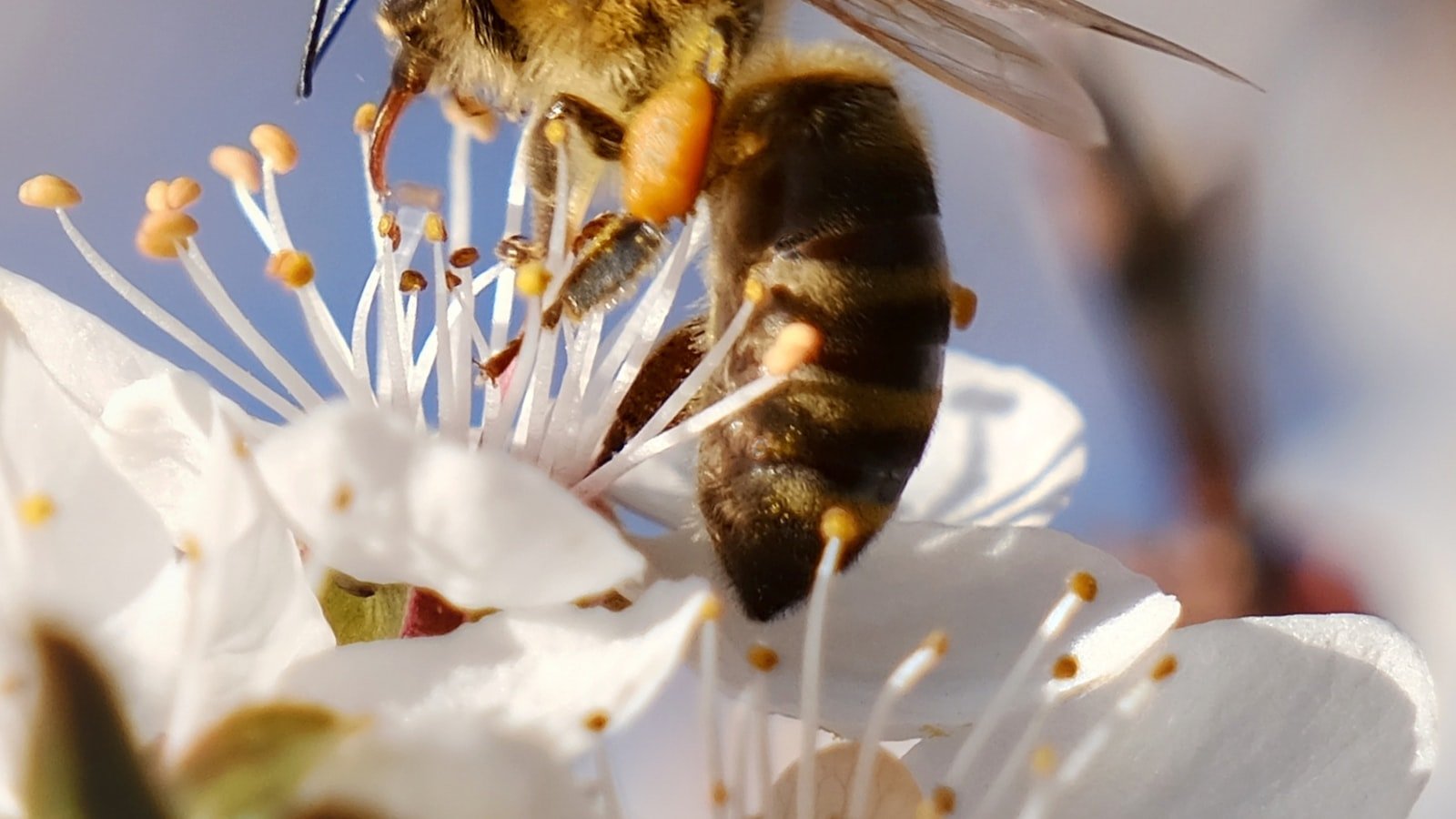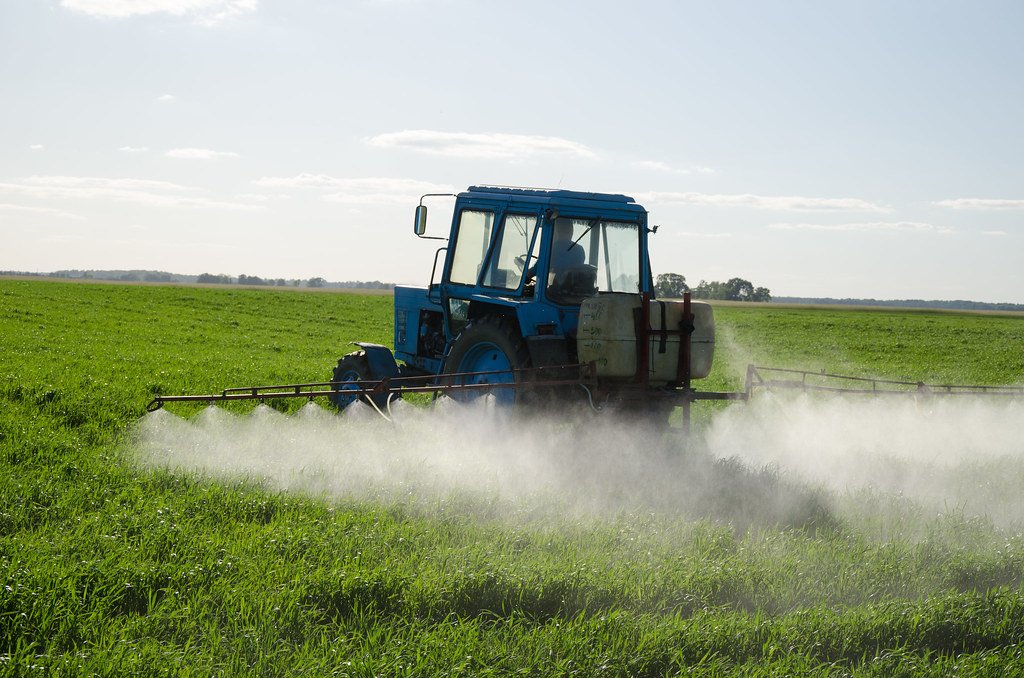In seemingly ordinary gardens and fields, an intricate dance between plants and pollinators unfolds quietly, hidden beneath the surface of our bustling world. Bees, those diligent purveyors of pollen, flit from bloom to bloom, facilitating the reproduction of countless plant species. But amidst this enchanting symbiotic relationship lies an unsettling truth that threatens the survival of our buzzing allies. Pesticides, once hailed as the saviors of crops and gardens, have inadvertently cast a dark shadow over the very plants they were meant to protect. As we delve into the melodious realms of bee-friendly plants and the impact of pesticides upon them, a veil will be lifted, revealing the delicate balance tipping precariously in an unprecedented era of environmental uncertainty.
Table of Contents
- Selection of Bee-Friendly Plants for a Pesticide-Free Habitat
- The Detrimental Effects of Pesticides on Bee-Pollinated Plants
- Promoting Bee Health: Alternatives to Harmful Pesticides
- Creating a Safe Environment for Bees: Best Practices for Pest Control
- Enhancing Bee-Friendly Gardens: Tips for Eco-Friendly Pest Management
- Q&A
- To Wrap It Up

Selection of Bee-Friendly Plants for a Pesticide-Free Habitat
Did you know that planting bee-friendly plants is not only beneficial for the busy little pollinators but also for our environment? By creating a pesticide-free habitat, we can support the well-being of bees and contribute to the overall health of our ecosystem. Here are some fantastic plant options that will attract and nourish these important creatures:
- Lavender: Known for its fragrant blooms and vibrant purple hues, lavender is a favorite among bees. Its nectar-rich flowers provide a valuable food source, while the plant’s open structure allows for easy access during pollination.
- Chives: These beautiful perennials offer a splash of color to any garden, attracting bees with their stunning purple flowers. Chives are not only bee magnets but also essential for our culinary adventures, adding a delightful onion-like flavor to dishes!
- Sunflowers: With their large, sunny, and vibrant blooms, sunflowers are a delightful addition to any bee-friendly garden. Bees are drawn to their nectar-filled centers, and you’ll love watching the industrious pollinators dart from flower to flower.
Incorporating these bee-friendly plants into your pesticide-free habitat will not only create a beautiful and vibrant space but also play a crucial role in the well-being of our buzzing friends. Join us in fostering a sustainable environment where bees can thrive and continue to perform their invaluable pollination services.
The Detrimental Effects of Pesticides on Bee-Pollinated Plants
Pesticides and their impact on bee-pollinated plants
Pesticides are chemicals that are commonly used to control pests, including insects, in agricultural and horticultural practices. While their intended purpose is to protect crops and maximize yields, the excessive and indiscriminate use of pesticides has led to detrimental effects on bee-pollinated plants and their delicate ecosystems.
The widespread use of pesticides has resulted in a multitude of negative consequences for bees and other pollinators. Bees play a crucial role in the pollination process, supporting the reproduction of countless plant species. However, the toxic chemicals present in many pesticides can disrupt the natural behavior and physiology of bees, affecting their ability to forage for nectar and pollen, navigate their surroundings, and communicate with their fellow hive members.
This leads to several detrimental effects:
- Decline in pollination rates: Due to the harmful impacts of pesticides, bees may become disoriented, lose their sense of direction, or even die. Consequently, their reduced presence and activity in the vicinity of plants directly contribute to decreased pollination rates, compromising the reproductive success of bee-pollinated plants.
- Impaired plant growth and biodiversity: Bee-pollinated plants rely heavily on pollination to reproduce and form seeds or fruits. When pollination rates decline, these plants struggle to achieve optimal growth, and their overall health and biodiversity are compromised. This not only affects the plants themselves but also disrupts the balance within ecosystems, potentially impacting other animal species that rely on these plants for food or habitat.
- Long-lasting ecological consequences: Pesticides can persist in the environment long after their application, contaminating soil, water sources, and even wildflowers surrounding agricultural areas. These residues can continue to harm bees and other pollinators, posing a significant long-term threat to their populations and, consequently, the viability of bee-pollinated plants.

Promoting Bee Health: Alternatives to Harmful Pesticides
Bee health is of utmost importance for the overall well-being of our ecosystems. However, the use of harmful pesticides has been jeopardizing the survival of these vital pollinators. Thankfully, there are several alternative approaches to controlling pests that not only help protect bee health but also ensure the health of our crops.
1. Integrated Pest Management (IPM): IPM is a holistic approach that focuses on prevention, observation, and control of pests. By monitoring pest populations, implementing cultural practices, and utilizing biological controls, such as beneficial insects and natural predators, pesticides can be minimized or even eliminated.
2. Organic Farming: Organic farming embraces the use of natural methods and substances to control pests. By avoiding synthetic pesticides altogether and instead utilizing techniques like crop rotation, companion planting, and biological control, organic farmers create an ecosystem that supports bees and other beneficial insects.
3. Planting Bee-Friendly Gardens: Creating bee-friendly habitats is another way to promote bee health without resorting to harmful pesticides. Planting a diverse range of native flowers and providing water sources in your garden can attract bees and provide them with the nourishment they need.
By adopting these alternatives and working together to promote bee health, we can ensure the survival of these crucial pollinators and safeguard the future of our ecosystems.
Creating a Safe Environment for Bees: Best Practices for Pest Control
In order to protect the delicate ecosystem that bees contribute to, it is crucial to implement best practices for pest control. By prioritizing the safety of these pollinators, we can ensure their survival and the continued abundance of our natural surroundings. Here are some key tips to follow when it comes to pest control:
- Choose organic and bee-friendly solutions: When dealing with pests, opt for natural alternatives that do not harm bees. Avoid using pesticides that are toxic to these essential insects and opt for eco-friendly methods instead.
- Promote biodiversity: Encourage a diverse range of native plants in your garden or green space. By providing a variety of flowering plants, you attract beneficial insects that help control pests naturally. This diversity also supports bees in finding nutritious food sources year-round.
- Implement Integrated Pest Management (IPM) techniques: IPM focuses on a holistic approach to pest control. By combining different methods such as biological controls, physical barriers, and cultural practices, it minimizes the use of chemicals and promotes long-term pest management.
- Educate and promote awareness: Spread the word about the importance of bees and the dangers of pesticide use. By raising awareness within your community, you can encourage others to adopt bee-friendly practices and create a collective effort to protect these vital pollinators.
Remember, our actions have a direct impact on the well-being of bees. By taking steps to create a safe environment and practicing responsible pest control, we can ensure the thriving existence of bees and the countless benefits they bring to our world.
Enhancing Bee-Friendly Gardens: Tips for Eco-Friendly Pest Management
Creating a bee-friendly garden is not only beneficial for our pollinator friends, but also for a healthy ecosystem. While pests may occasionally threaten your plants, it’s important to remember that traditional chemical-based insecticides can harm bees and other beneficial insects. Luckily, there are eco-friendly alternatives that can effectively manage pests while keeping your garden safe for bees. Here are a few tips to enhance your bee-friendly garden with eco-friendly pest management techniques:
- Companion planting: Engage in the age-old practice of companion planting with bee-attracting flowers that naturally repel common garden pests. For example, interplanting marigolds or chrysanthemums can deter aphids and nematodes.
- Biological control: Harness the power of nature by introducing beneficial insects to your garden that will prey on pests. Ladybugs, lacewings, and praying mantises are natural predators that can control aphids and other harmful insects.
- Organic pest control: Make use of organic pest control solutions, such as neem oil or insecticidal soap, that target pests without harming bees or other beneficial insects. These natural products are low in toxicity and can effectively manage unwanted invaders.
- Encourage biodiversity: Diverse ecosystems are better equipped to handle pest problems. By including a variety of plants and creating habitats like bee hotels and freshwater sources, you’ll attract a broader range of beneficial insects that can keep pests in check.
- Regular monitoring: Keep a watchful eye on your garden for any signs of pests. Early detection allows for prompt action and prevents pest populations from escalating. Regularly inspect your plants, remove any pest-infested sections, and promptly address any potential issues.
By implementing these eco-friendly pest management tips, you can create a thriving bee-friendly garden that will not only safeguard our precious pollinators but also ensure a healthy, vibrant garden for years to come.
Q&A
How do pesticides affect bee-friendly plants?
Pesticides can have detrimental effects on bee-friendly plants by disrupting their natural pollination process. The chemicals in pesticides can kill or harm bees, reducing their numbers and ultimately leading to a decline in pollination, affecting the reproductive success of these plants.
Can pesticides contaminate the nectar and pollen of bee-friendly plants?
Yes, pesticides can contaminate the nectar and pollen of bee-friendly plants. When bees collect nectar and pollen from flowers treated with pesticides, they can inadvertently bring these chemicals back to their hives, potentially poisoning the entire colony.
What are the long-term consequences of pesticide exposure for bee-friendly plants?
Long-term pesticide exposure can have severe consequences for bee-friendly plants. It can lead to reduced flower production and quality, alter the nutritional content of their nectar and pollen, and create a decline in genetic diversity within these plants due to the negative impact on pollinators.
Can pesticides affect the behavior of bees towards bee-friendly plants?
Yes, pesticides can affect the behavior of bees when it comes to interacting with bee-friendly plants. Bees exposed to pesticides may become less attracted to the scents and colors of these plants, impacting their foraging behavior and reducing the chances of successful pollination.
Are there any alternatives to using pesticides on bee-friendly plants?
Yes, there are alternative methods to protect bee-friendly plants without the use of harmful pesticides. Integrated Pest Management practices, such as encouraging natural predators of pests, introducing beneficial insects, and utilizing organic pest control methods, can help maintain the health of these plants while minimizing harm to pollinators.
What can individuals do to support bee-friendly plants without harmful pesticide use?
Individuals can play a crucial role in supporting bee-friendly plants without relying on harmful pesticides. Planting native flowers, creating pesticide-free zones in gardens, providing clean water sources, and raising awareness about the importance of bees and their role in pollination can all contribute to a more bee-friendly environment.
To Wrap It Up
As we delve deeper into the intricacies of our natural world, the importance of maintaining the delicate balance between humanity and the environment becomes increasingly apparent. In this journey, bees have emerged as graceful guardians, diligently pollinating our landscapes and ensuring the survival of countless species. Yet, their tireless efforts face an unprecedented threat – pesticides. While these chemicals strive to protect our crops, they inadvertently jeopardize the very creatures that sustain the beauty of our planet.
In our exploration of the impact of pesticides on bee-friendly plants, we have ventured into a realm where enchantment intertwines with the scientific. The fragrant blossoms of lavender and sunflowers, once vibrant and irresistible to bees, now bear witness to the harrowing consequences of pesticides. The magic of these floral landscapes is fading, replaced by a silence that echoes the absence of those essential pollinators.
But with knowledge comes empowerment, dear readers. By truly understanding the intricate web that links these remarkable insects to the plants they so faithfully serve, we can pave the way towards a more sustainable future. For every detrimental pesticide, there exists a harmonious alternative, one that allows us to protect our crops without endangering our vital pollinators.
Let us imagine a world where the buzzing symphony of bees accompanies the gentle whispers of nature. Picture fields carpeted with vibrant wildflowers, beckoning bees with their sweet nectar, uninhibited by the fear of invisible harm. This vision is not beyond reach; it resides within our collective responsibility to advocate for change, to urge nations, communities, and individuals to embrace practices that safeguard both our crops and our precious pollinators.
As we bring this exploration to a close, let us remember that the fate of bees lies firmly in our hands. It is not a burden but a privilege, an opportunity to redefine our relationship with nature. Together, let us cultivate a world where the vibrant dance between bees and plants continues to unfold, where their brilliance thrives, unencumbered by the toxicity that threatens to shroud their existence.
In this endeavor, may we venture forth with unwavering commitment, guided by the wisdom of those who came before us, and propelled by a shared determination to nourish the delicate harmony that sustains our planet.
As an affiliate, my content may feature links to products I personally use and recommend. By taking action, like subscribing or making a purchase, you’ll be supporting my work and fueling my taco cravings at the same time. Win-win, right?
Want to read more? Check out our Affiliate Disclosure page.